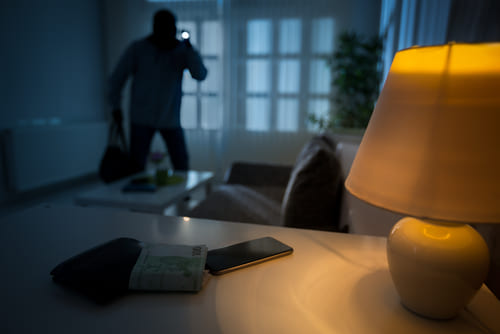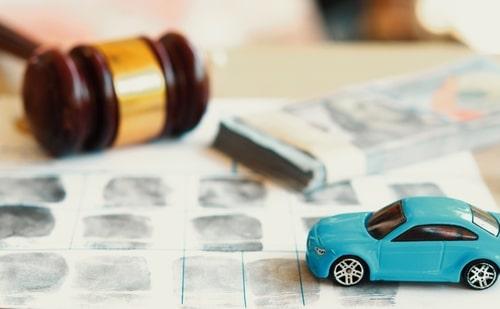Recent Blog Posts
How to Properly Respond to a Protective Order
 So your spouse has filed for an order of protection against you for domestic violence. What can you do in this situation? You could lash out irrationally, making matters worse, or you can respond with a level head, void of any emotional outbursts, in a respectful manner. Understanding your legal rights regarding a response is important as you only have a limited time in which to respond. At this time, it is prudent to involve an attorney experienced in these kinds of cases.
So your spouse has filed for an order of protection against you for domestic violence. What can you do in this situation? You could lash out irrationally, making matters worse, or you can respond with a level head, void of any emotional outbursts, in a respectful manner. Understanding your legal rights regarding a response is important as you only have a limited time in which to respond. At this time, it is prudent to involve an attorney experienced in these kinds of cases.
Protective Orders
Protective orders, or orders of protection, are limited to family members, household members, former or current spouses, romantic partners, and individuals who share a home (roommates). They are used as protection against domestic abuse. Violating a protective order could lead to criminal charges or time in jail.
Filing a Response to an Illinois Order of Protection
Once you receive the petition for the order of protection, you have the option to respond to it and defend yourself from the allegations being lobbied against you. The documents the order of protection came with should include the petition against you, an emergency order if one was entered, and any supporting statements for why the judge granted it. The order will list why you have received an order of protection against you, what you are prohibited from doing, and when you are expected to show up in court.
The Difference Between Burglary and Attempted Burglary in Illinois
 In Illinois, as long as there is intent to steal, burglary and attempted burglary are the same thing. So, even if an alleged burglar had no chance to steal anything, if they were in an unauthorized area with the intent to steal something, then they can face burglary charges. If you are facing charges of burglary, you must remember to contact a lawyer immediately. A criminal defense attorney will be able to defend your rights during interrogation and in a court of law.
In Illinois, as long as there is intent to steal, burglary and attempted burglary are the same thing. So, even if an alleged burglar had no chance to steal anything, if they were in an unauthorized area with the intent to steal something, then they can face burglary charges. If you are facing charges of burglary, you must remember to contact a lawyer immediately. A criminal defense attorney will be able to defend your rights during interrogation and in a court of law.
How is Intent Proven?
As intent is the only thing required to prove burglary has taken place, it is often the biggest point of contention in court by the prosecutor. If nothing was stolen, and the defendant has admitted to nothing, then how can they prove intent?
Police will thoroughly investigate the crime scene in search of clues for any indication of intent to steal. They may also conduct interviews with many parties, which include:
Understanding Misdemeanor Charges in Illinois
 Misdemeanor charges are plentiful in the state of Illinois. Though a misdemeanor will typically carry a penalty lesser than a felony, it should be taken no less seriously. There are several different types of misdemeanors one can face charges of in Illinois. Each misdemeanor carries its own penalties and sentencing. An experienced criminal defense attorney is a good friend to have when facing misdemeanor charges or any criminal charges in Illinois.
Misdemeanor charges are plentiful in the state of Illinois. Though a misdemeanor will typically carry a penalty lesser than a felony, it should be taken no less seriously. There are several different types of misdemeanors one can face charges of in Illinois. Each misdemeanor carries its own penalties and sentencing. An experienced criminal defense attorney is a good friend to have when facing misdemeanor charges or any criminal charges in Illinois.
Understanding Illinois Criminal Charges
Not all misdemeanor charges require legal representation but a good lawyer is always something to consider when being charged with any criminal offenses. Misdemeanors are categorized as a lower class of criminal charge, felonies being the higher of the two. A petty offense is the lowest charge possible, only resulting in a fine. Which charge you receive depends on the specifics of the crime.
Will I Go To Prison For Using Fake Money?
 Attempting to make a gas station purchase using Monopoly money is more likely to get you laughed at than anything else. However, using counterfeit bills to buy anything could land you in deep trouble with Illinois law. Using counterfeit money carries very steep penalties, which include having a hard time in prison. Forgery and fraud charges are no laughing matter. Facing these charges alone is a mistake, and you would do well to consult a criminal defense attorney experienced in fraud defense cases.
Attempting to make a gas station purchase using Monopoly money is more likely to get you laughed at than anything else. However, using counterfeit bills to buy anything could land you in deep trouble with Illinois law. Using counterfeit money carries very steep penalties, which include having a hard time in prison. Forgery and fraud charges are no laughing matter. Facing these charges alone is a mistake, and you would do well to consult a criminal defense attorney experienced in fraud defense cases.
What is Counterfeit Money?
For currency to be counterfeit, it must be forged, altered, or falsely made. The bills must also look authentic enough to the real thing, so much so that they could fool the average person for a prosecutor to make any counterfeit charges stick. However, a prosecutor could still charge you with fraud, forgery, or theft by deception. Other fabrications that can be considered fake include:
The Most Common Traffic Violations in Illinois
 Traffic violations are a common occurrence in the state of Illinois and the country as a whole. But which infractions are the most common, and what penalties are you likely to face when charged? When staring down charges for traffic violations, you must understand your rights and secure an experienced defense attorney to defend you.
Traffic violations are a common occurrence in the state of Illinois and the country as a whole. But which infractions are the most common, and what penalties are you likely to face when charged? When staring down charges for traffic violations, you must understand your rights and secure an experienced defense attorney to defend you.
Speeding
It is quite the obvious entry to the list as it is the most common traffic violation you will come across in Illinois. Obeying the speed limit can prevent you from being pulled over and slapped with a speeding ticket. Speeding puts both you and others on the road in potential danger. The side effects could be deadly for all parties involved.
Illinois has two different types of speed limits: basic and absolute. The basic concerns speed limits in specific road conditions such as rain storms or icy roads. Absolute is the typical maximum speed limit imposed on the posted speed limit signs.
Understanding Scott’s Law
 Scott’s Law has been in effect since 2002, yet some individuals still may not fully understand it and the penalties they can face when violating the traffic law. Illinois continues in its attempt to educate drivers on the proper procedures regarding Scott’s Law and the safety of emergency responders, even implementing a change to the law in 2017 to apply to all vehicles displaying flashing emergency lights. Violating Scott’s Law can carry minor to severe penalties, depending on the offense. A strong lawyer committed to defending your rights will help you better understand the traffic violations you face and how best to defend yourself against them.
Scott’s Law has been in effect since 2002, yet some individuals still may not fully understand it and the penalties they can face when violating the traffic law. Illinois continues in its attempt to educate drivers on the proper procedures regarding Scott’s Law and the safety of emergency responders, even implementing a change to the law in 2017 to apply to all vehicles displaying flashing emergency lights. Violating Scott’s Law can carry minor to severe penalties, depending on the offense. A strong lawyer committed to defending your rights will help you better understand the traffic violations you face and how best to defend yourself against them.
What is Scott’s Law?
Scott’s Law, also called the "move over" law, requires drivers to proceed cautiously when passing stopped emergency vehicles by slowing down and switching lanes to avoid a collision with the vehicle or any individuals in the area. The emergency vehicles should display alternating flashing yellow, red, red-and-blue, blue, or red-and-white lights to indicate they are authorized emergency vehicles.
How To Defend Myself From False Domestic Violence Allegations
 Domestic violence allegations carry a serious stigma that could follow a person for the rest of their life. Unfortunately, it is all too common that these allegations are false, adding insult to injury to an already destroyed reputation. To defend against domestic violence allegations, false or otherwise, it is important you know your rights. An experienced attorney can inform you of your legal options and provide a strong defense to these allegations in court.
Domestic violence allegations carry a serious stigma that could follow a person for the rest of their life. Unfortunately, it is all too common that these allegations are false, adding insult to injury to an already destroyed reputation. To defend against domestic violence allegations, false or otherwise, it is important you know your rights. An experienced attorney can inform you of your legal options and provide a strong defense to these allegations in court.
What False Allegations Mean
Bogus allegations of domestic violence can pop up from anywhere. There are many situations in which a defendant could see false domestic allegations arise:
- An abandoned former lover
- A messy break-up
- Custody dispute battles
- Personal vendettas
You must recognize the seriousness of these accusations if you are to be able to defend yourself in the best way possible. Being accused of domestic violence can do irreparable harm to your reputation, your parent-child bond, and your professional career. They can even lead to restraining orders and a loss of parenting time.
What to Expect at a License Reinstatement Hearing
 Your license may face suspension or revocation when certain traffic violations are committed. As long as your license remains eligible for reinstatement, a reinstatement hearing may be required to lift the suspension or revocation of your license. A license can be suspended or revoked for many things, including speeding, driving under the influence (DUI), and reckless driving. Having an experienced attorney in your corner who understands the laws and charges you are facing is your best chance at getting your license reinstated.
Your license may face suspension or revocation when certain traffic violations are committed. As long as your license remains eligible for reinstatement, a reinstatement hearing may be required to lift the suspension or revocation of your license. A license can be suspended or revoked for many things, including speeding, driving under the influence (DUI), and reckless driving. Having an experienced attorney in your corner who understands the laws and charges you are facing is your best chance at getting your license reinstated.
What is a Formal License Reinstatement Hearing?
Formal hearings are contested proceedings where an opposing attorney represents the Secretary of State. This attorney is referred to as a hearing representative. These hearings are for the reinstatement of suspended and revoked driver’s licenses or driving privileges. The driver can and should have legal representation in a formal license reinstatement hearing as they face both direct and cross-examination. Proper preparation and presentation are the keys to a case that does not wish to end in a denial of relief result.
Understanding a Plea Deal in Illinois
 A plea deal, plea bargain, or plea agreement are all the same terminology used for an arrangement between a defendant and a prosecutor. The arrangement sees the defendant plead guilty to their accused crimes for reduced charges or a lighter sentence. Before signing any plea deal, it is smart to consult with a criminal defense attorney who has your best interests at heart.
A plea deal, plea bargain, or plea agreement are all the same terminology used for an arrangement between a defendant and a prosecutor. The arrangement sees the defendant plead guilty to their accused crimes for reduced charges or a lighter sentence. Before signing any plea deal, it is smart to consult with a criminal defense attorney who has your best interests at heart.
What Can I Expect from Signing a Plea Agreement?
Sentence and charge reduction are only two reasons to sign a plea agreement. Other reasons include:
- Getting through the proceedings faster
- Dodging jail time
- Avoiding a need for a jury of your peers
- Keeping out of the media spotlight
A judge may not always accept a plea bargain, so you should be ready to formulate a defense with the help of an attorney. You should reject a plea deal if you know that you are innocent, it does not reduce your sentence, or if your attorney thinks you deserve a better deal.
Reasons to Expunge or Seal a Juvenile Record
 There are many reasons why you might want to expunge or seal your juvenile record. The most common is to hide your records from prospective employers, educational institutions, and landlords who run background checks.
There are many reasons why you might want to expunge or seal your juvenile record. The most common is to hide your records from prospective employers, educational institutions, and landlords who run background checks.
You may be able to get a juvenile record expunged in Illinois. Expungement of criminal records can help you to improve your life and achieve your goals. If you are considering expunging your juvenile record, you should consult with an experienced criminal defense attorney.
What is the Difference Between Sealing and Expunging?
Sealing and expunging are two different processes for dealing with criminal records. Sealing a record means that it is hidden from public view, but it can still be accessed by certain people, such as law enforcement and judges. Expunging a record means that it is erased and cannot be seen by anyone, including employers and most government agencies. However, if you were to commit future offenses, law enforcement may still have access to your records.








